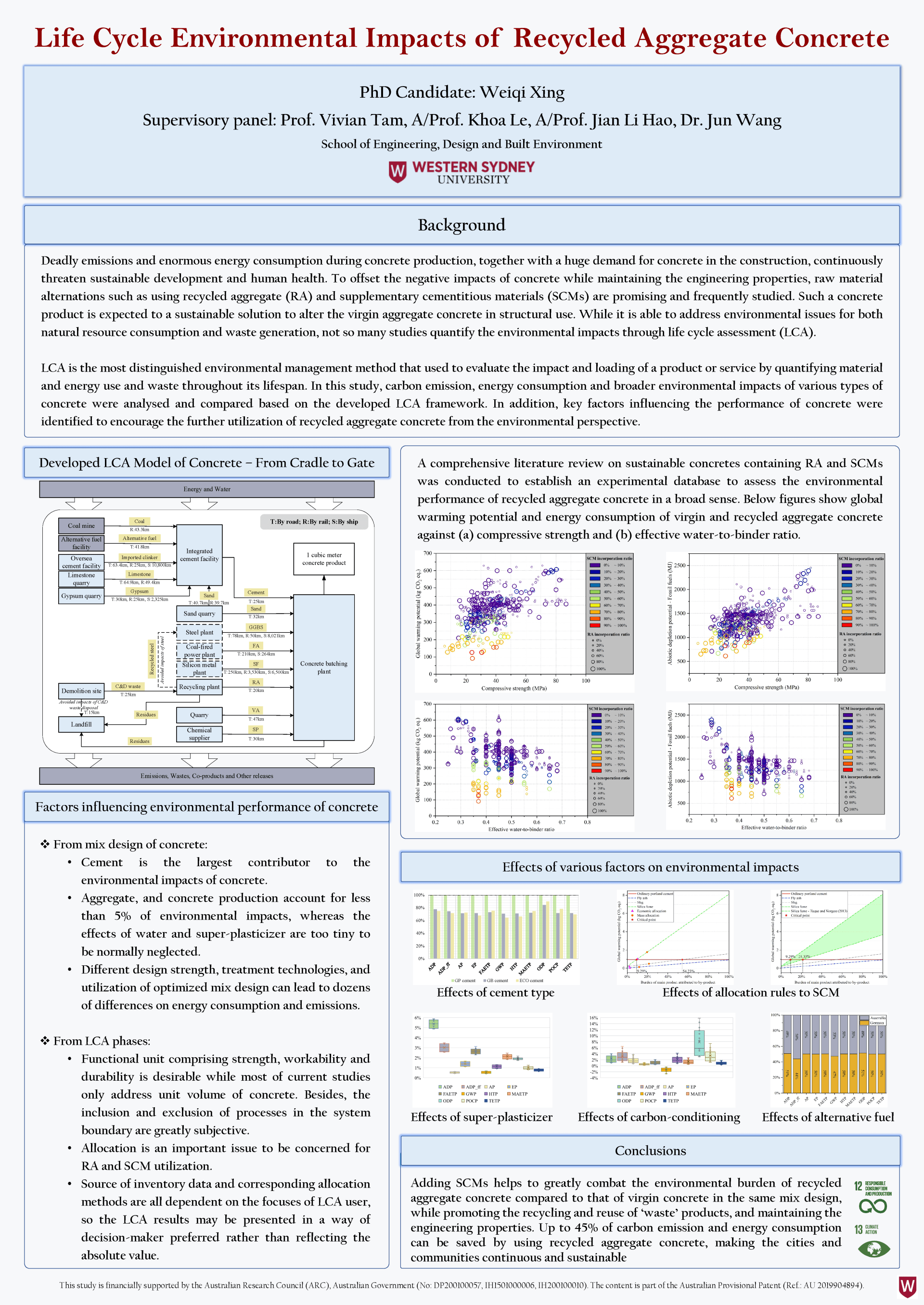Weiqi Xing
Construction Management
Evaluation of Sustainability Performances on Recycled Aggregate Concrete through Life Cycle Perspectives
Deadly emissions and enormous energy consumption during concrete production, together with a huge demand for concrete in the construction, continuously threaten sustainable development and human health. To offset the negative impacts of concrete while maintaining the engineering properties, raw material alternations such as using recycled aggregate (RA) and supplementary cementitious materials (SCMs) are promising and frequently studied. Such a concrete product is expected to a sustainable solution to alter the virgin aggregate concrete in structural use. While it is able to address environmental issues for both natural resource consumption and waste generation, not so many studies quantify the environmental impacts through life cycle assessment (LCA). LCA is the most distinguished environmental management method that used to evaluate the impact and loading of a product or service by quantifying material and energy use and waste throughout its lifespan. In this study, carbon emission, energy consumption and broader environmental impacts of various types of concrete were analysed and compared based on the developed LCA framework. In addition, key factors influencing the performance of concrete were identified to encourage the further utilization of recycled aggregate concrete from the environmental perspective.


